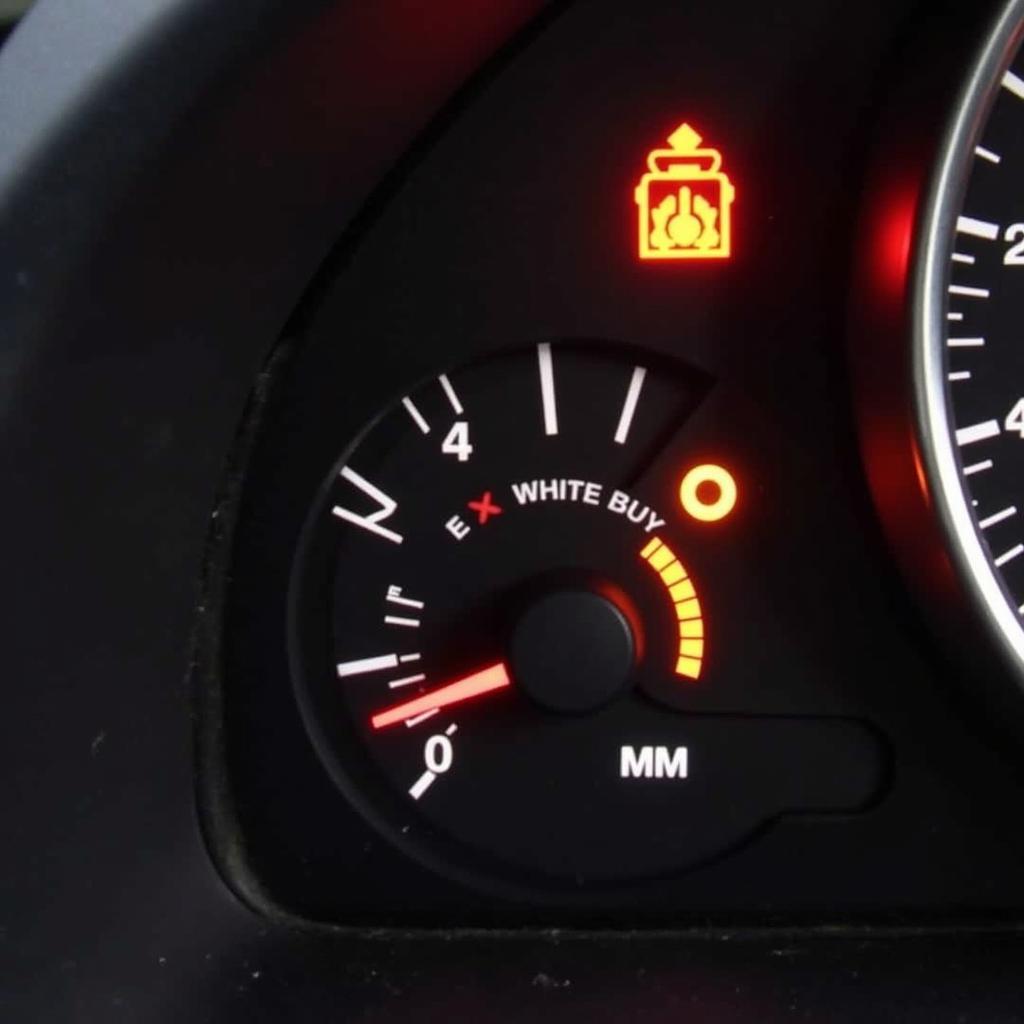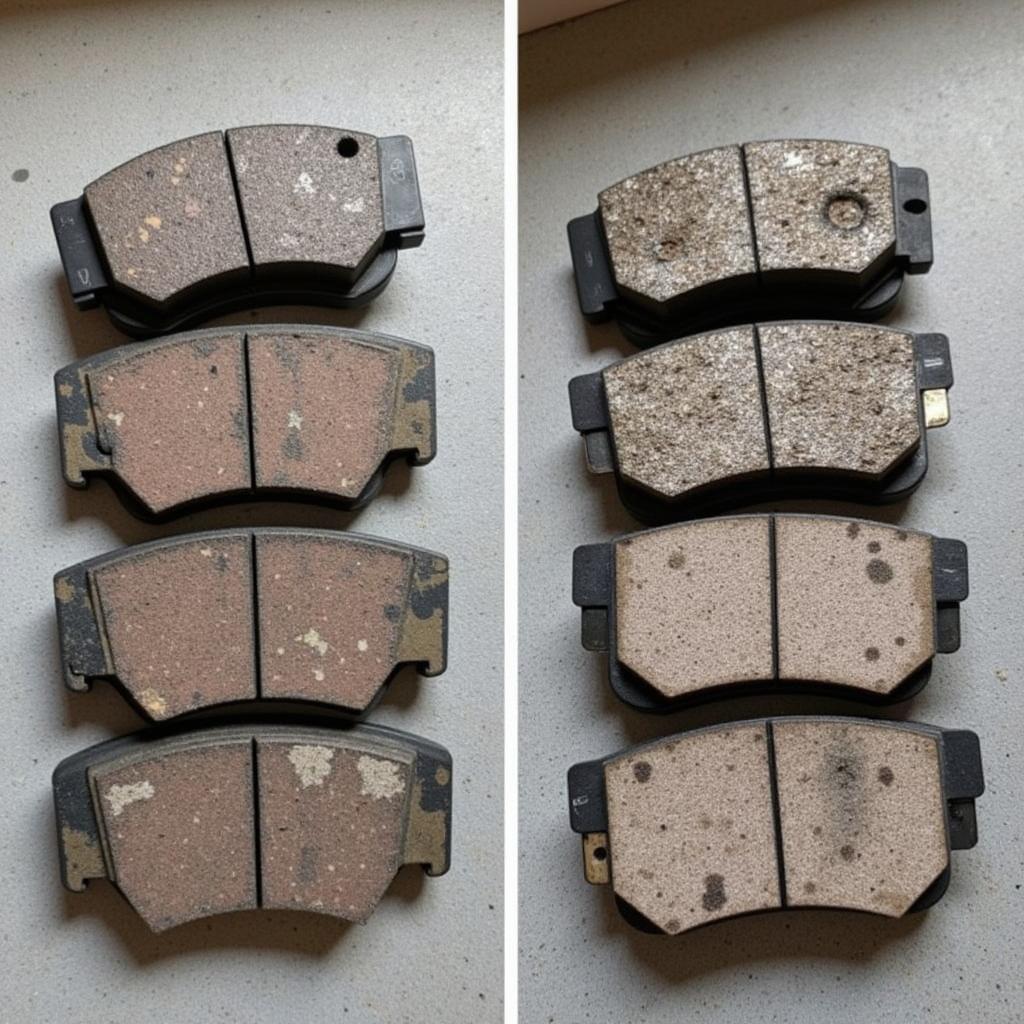The brake warning light on your 2004 VW Passat illuminating can be a nerve-wracking experience. It’s a clear signal that something needs attention within your braking system, which is crucial for your safety on the road. While it can point to a simple issue like low brake fluid, it could also indicate a more complex problem demanding immediate attention. This guide will navigate you through the possible causes of the 2004 VW Passat brake warning light and provide potential solutions, empowering you to address this issue effectively.
Understanding Your VW Passat’s Brake Warning Light System
Before diving into the causes, it’s essential to grasp how the brake warning light system operates in your 2004 VW Passat. This system is designed to alert you about two primary concerns:
- Low Brake Fluid: Your Passat utilizes hydraulic pressure to engage the brakes. When the brake fluid level drops below a safe threshold, the warning light triggers, signifying a potential leak or wear on the brake components.
- Brake System Malfunction: The warning light is also connected to your car’s Electronic Brake-force Distribution (EBD) system and Anti-lock Braking System (ABS). If these systems detect a fault, the warning light will turn on.
Common Causes of a 2004 VW Passat Brake Warning Light
Now, let’s delve into the most frequent culprits behind that glowing brake warning light on your dashboard:
1. Low Brake Fluid
This is the most common reason for the brake warning light to illuminate. As brake pads wear down over time, they create more space between themselves and the brake rotor. This requires more brake fluid to fill the gap and maintain hydraulic pressure.
Solution: Check your brake fluid reservoir. If the level is low, carefully top it off with the correct brake fluid type specified in your owner’s manual. However, simply adding fluid isn’t a long-term solution. If you’re constantly low, you likely have a leak.
 VW Passat Low Brake Fluid Reservoir
VW Passat Low Brake Fluid Reservoir
2. Worn Brake Pads
Brake pads are designed to wear down over time. As they thin, they can activate the brake warning light.
Solution: Inspect your brake pads. If you notice they are thin or worn unevenly, it’s time for a replacement.
 Worn Brake Pads on a 2004 VW Passat
Worn Brake Pads on a 2004 VW Passat
3. Brake Fluid Leak
A leak in your brake lines, hoses, or calipers can lead to a significant drop in brake fluid, triggering the warning light.
Solution: Thoroughly inspect all brake components for any signs of leakage. Look for wet spots or drips around the brake lines, hoses, calipers, and the master cylinder. Repair or replace any leaking components immediately.
4. Faulty Brake Light Switch
The brake light switch, located at the top of your brake pedal, signals when you apply the brakes, activating your brake lights. A malfunctioning switch can disrupt this signal and potentially illuminate the brake warning light.
Solution: The brake light switch is usually inexpensive and relatively easy to replace. Testing it with a multimeter or consulting a mechanic is recommended.
5. ABS Sensor Issues
Your 2004 VW Passat’s Anti-lock Braking System (ABS) relies on sensors at each wheel to function correctly. A dirty, damaged, or faulty ABS sensor can send inaccurate signals, causing the brake warning light to come on.
Solution: Inspect your ABS sensors for visible damage or dirt buildup. Cleaning or replacing a faulty sensor typically requires professional diagnostic equipment.
6. Master Cylinder Failure
The master cylinder is the heart of your braking system, converting pedal pressure into hydraulic force. A failing master cylinder may not generate sufficient pressure, triggering the warning light and compromising your braking ability.
Solution: Diagnosing a faulty master cylinder requires specific knowledge and tools. It’s best to have a professional mechanic inspect and potentially rebuild or replace the master cylinder if necessary.
Addressing the Brake Warning Light
Important: A glowing brake warning light indicates a potential problem with your braking system. Never ignore this warning.
What to Do:
- Safely pull over: If the brake warning light comes on while driving, find a safe location to pull over immediately.
- Check your brake fluid: If the fluid level is low, carefully add the recommended type until it reaches the “MAX” line.
- Inspect your brakes: Look for any obvious signs of leaks or damage to your brake lines, hoses, and calipers.
- Seek professional help: If you cannot identify the cause or are uncomfortable working on your brakes, seek assistance from a qualified mechanic immediately.
Expert Insight
“While a low brake fluid level might seem like a minor inconvenience, it’s crucial to remember that your car’s braking system operates on hydraulic pressure. Even a small leak can compromise your ability to stop effectively, putting you and others at risk. Never delay addressing a brake warning light – your safety depends on it.” – Mark Stevenson, ASE Certified Master Technician
Conclusion
Addressing the brake warning light on your 2004 VW Passat promptly is vital to maintain your safety on the road. By understanding the potential causes and solutions outlined in this guide, you can take the necessary steps to diagnose and address the issue effectively, ensuring your peace of mind while driving. Remember, when in doubt, consult a qualified mechanic to ensure your braking system is in optimal condition.
